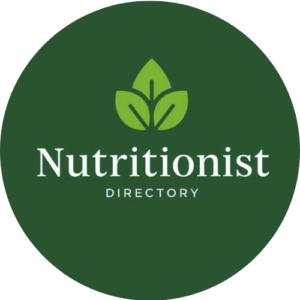
Nutrition Basics: A Practical Guide to Eating for Better Health
Nutrition Basics: A Practical Guide to Eating for Better Health
In today’s world of ever-changing diet trends and conflicting health advice, understanding the fundamentals of nutrition is more important—and more empowering—than ever. Whether you’re looking to boost energy, manage your weight, improve mood, or support long-term health, getting back to the basics of nutrition is the best place to start.
In this article, we’ll walk through the core principles of healthy eating, debunk common myths, and give you a solid foundation to make informed food choices every day.
What Is Nutrition, Really?
Nutrition is the science of how food affects the body. It’s not just about calories or weight loss; it’s about fueling your body with the nutrients it needs to grow, repair, and thrive.
At the core, nutrition focuses on:
- Macronutrients: Carbohydrates, proteins, and fats
- Micronutrients: Vitamins and minerals
- Water: Essential for virtually every bodily function
- Fiber: Key for digestive and metabolic health
Let’s break these down and explore their roles in your health.
1. Macronutrients: Your Body’s Main Energy Sources
Carbohydrates
Carbs are the body’s preferred source of energy. Found in fruits, vegetables, grains, and legumes, carbohydrates break down into glucose (sugar), which powers your brain and muscles.
Choose more of:
- Whole grains (brown rice, oats, quinoa)
- Fruits and vegetables
- Legumes
Limit:
- Refined carbs like white bread, pastries, sugary drinks
Proteins
Protein is essential for building and repairing tissues, producing hormones, and supporting immune function. It’s made up of amino acids—some of which your body can’t produce and must get from food.
Sources include:
- Lean meats, poultry, fish
- Eggs and dairy
- Legumes, tofu, nuts, seeds
Fats
Despite their bad reputation in the past, healthy fats are vital. They support brain function, hormone production, and help absorb fat-soluble vitamins (A, D, E, K).
Choose healthy fats:
- Olive oil, avocado, nuts, seeds, fatty fish (like salmon)
- Limit saturated fats and avoid trans fats often found in processed foods
2. Micronutrients: Small But Mighty
Micronutrients include a wide variety of vitamins and minerals that your body needs in smaller amounts but are essential for health. These nutrients support everything from bone strength to immune defense and mental clarity.
Key examples:
- Calcium and Vitamin D for bone health
- Iron for energy and oxygen transport
- Vitamin C for immune support
- B vitamins for energy metabolism
- Magnesium for muscle and nerve function
Eating a diverse, colorful diet with plenty of fruits and vegetables is the best way to ensure you’re getting a full spectrum of vitamins and minerals.
3. Hydration: The Forgotten Nutrient
Water makes up about 60% of your body and is crucial for digestion, circulation, temperature regulation, and nutrient transport.
General tip: Aim for around 6–8 glasses of water per day, more if you’re active or in a hot climate. Herbal teas, broths, and water-rich foods like cucumbers and melons can also contribute to hydration.
4. Fiber: A Key to Longevity and Gut Health
Dietary fiber is a type of carbohydrate your body can’t digest, but it plays a vital role in keeping your digestive system healthy and your blood sugar stable.
Benefits of fiber:
- Promotes regular bowel movements
- Supports healthy gut bacteria
- Helps manage cholesterol and blood sugar levels
- Contributes to a feeling of fullness
High-fiber foods include:
- Whole grains
- Legumes
- Fruits and vegetables
- Nuts and seeds
Aim for at least 25–30 grams of fiber per day from whole food sources.
Portion Control and Balanced Eating
Understanding nutrition also means knowing how to build a balanced plate. A helpful guideline is the “plate method”:
- ½ plate vegetables and fruits
- ¼ plate whole grains or starchy vegetables
- ¼ plate protein-rich foods
- Add a small amount of healthy fat
- Include water or an unsweetened beverage
This approach encourages variety and moderation without needing to count calories obsessively.
Nutrition Myths to Watch Out For
1. “All carbs are bad.”
Not true. Whole carbohydrates like oats, brown rice, fruits, and vegetables are highly nutritious.
2. “Fat makes you fat.”
Also false. Healthy fats are essential. Overeating any macronutrient—fat, carbs, or protein—can lead to weight gain if in excess of your energy needs.
3. “You need to detox with juices or cleanses.”
Your liver and kidneys already detox your body naturally. Instead of extreme diets, focus on balanced, whole foods.
How to Read Nutrition Labels
Becoming label-savvy can help you make better choices. Look out for:
- Serving size: Often smaller than you expect
- Added sugars: Watch for high amounts
- Ingredients list: Shorter lists with recognizable ingredients are usually better
- Percent Daily Value (%DV): Use this to gauge if a food is high or low in nutrients
Creating Healthy Habits That Stick
Instead of jumping from one diet trend to another, aim to build sustainable habits. Here are a few tips:
- Cook more at home: Gives you control over ingredients
- Plan meals: Reduces the temptation of fast food
- Listen to your body: Eat when you’re hungry, stop when you’re satisfied
- Stay consistent: Perfection isn’t necessary—consistency is
When to See a Nutrition Professional
Everyone’s nutritional needs are different. If you have specific health concerns, dietary restrictions, or want personalized guidance, working with a registered nutritionist or dietitian can be a game changer.
They can help with:
- Weight management
- Managing chronic conditions like diabetes or IBS
- Food allergies or intolerances
- Athletic performance
- Meal planning and behavior change
Final Thoughts
Good nutrition isn’t about rigid rules or deprivation—it’s about nourishing your body so you can live your life fully and energetically. By understanding the basics, prioritizing whole foods, and making mindful choices, you’re already on the path to better health.
Ready to take the next step? Browse NutritionistDirectory.com to connect with a qualified nutrition professional in your area and get support tailored to your unique needs.
Author Bio:
This article was written by the editorial team at NutritionistDirectory.com—your trusted source for evidence-based nutrition information and qualified professionals. We believe in empowering people to make informed, personalized choices for lifelong health.

